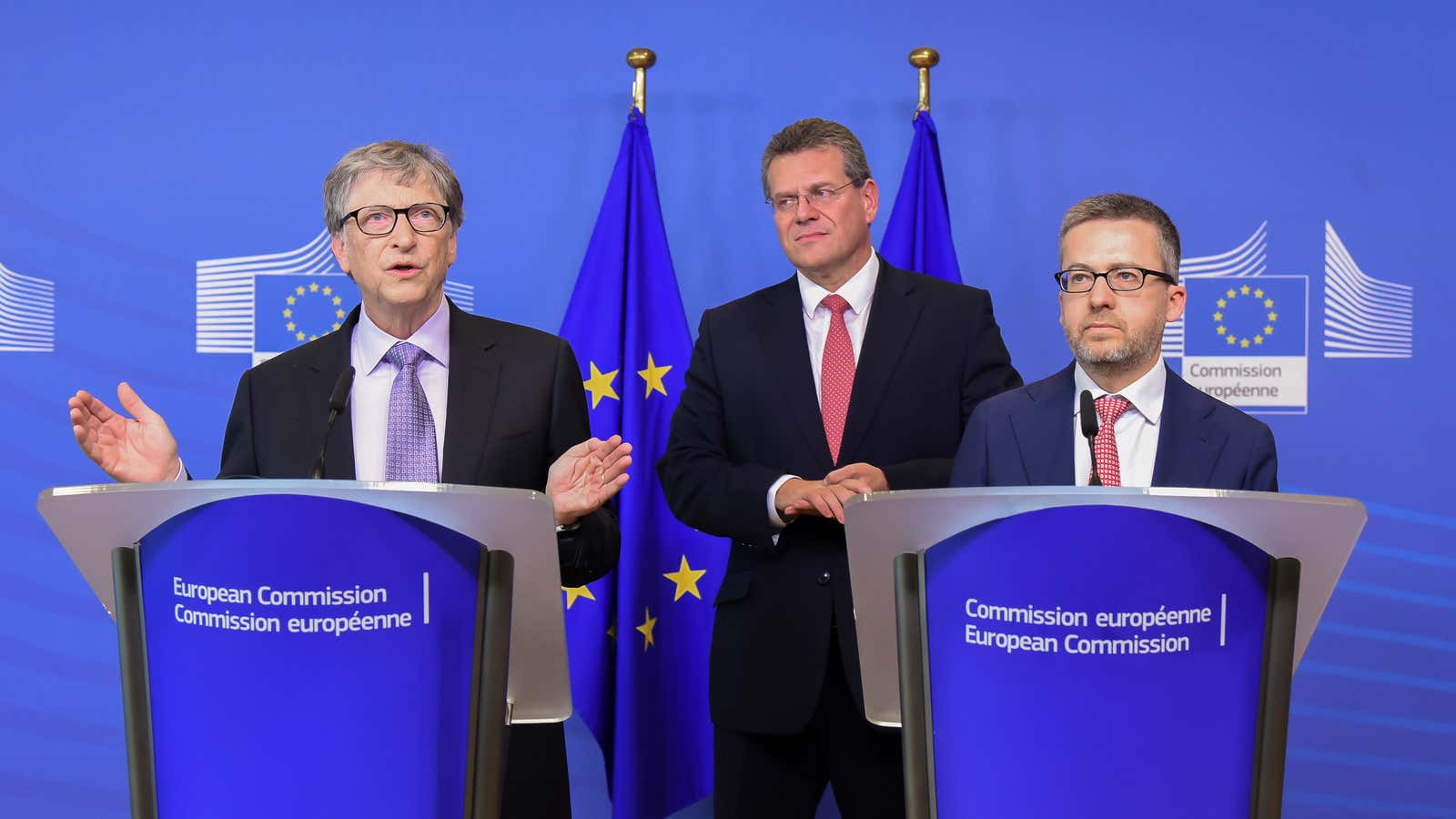“We cannot do it alone,” said Carlos Moedas, the European Commission’s head for research, science, and innovation. Moedas was standing next to Bill Gates at a press event in Brussels to announce a new “public-private partnership” designed to help Europe hit climate goals.
Moedes and Gates yesterday (Oct. 17) launched Breakthrough Energy Europe, a €100 million ($115 million) fund to invest in “radical” clean-energy technologies. Half the amount will come from InnovFin, a European Investment Bank financing tool for research and innovation projects, and the other half from Breakthrough Energy, which includes Breakthrough Energy Ventures (BEV), a $1 billion fund backed by Gates and a group of some of the world’s richest people, including Jeff Bezos, Jack Ma, and Richard Branson, and Breakthrough Energy Coalition, a network of institutions, corporations, and influential individuals that Gates can draw from when his team needs expertise and funds.
“With any luck, we’ll be able to fully invest [the European fund] in less than a couple of years,” Gates said. “And then we can come back and want to scale this up.”
BEV has invested in 20 startups to date, Gates said. Nine of those investments are public (Quartz was the first to report two investments in June and seven more in September). Gates noted that those investments have so far primarily focused on North America, but through Breakthrough Energy Europe, the fund will now open offices in the EU and will invest in European clean-energy companies. Gates mentioned energy storage and technologies to cut emissions from the industrial and agricultural sectors as potential targets.
The goal of BEV is to invest in high-risk, high-reward startups. A team of entrepreneurs, scientists, and investors, based in Boston, makes the decision about which companies to fund, but there is one overarching criterion: companies need to show that their technology has the potential to cut as much as 500 million metric tons of annual greenhouse-gas emissions. (This criterion will also apply to the Breakthrough Energy Europe fund, according to a spokesperson for the EU.)
Like BEV’s $1 billion fund, the European fund will not be looking for returns for at least 20 years, according to an EU spokesperson. In a way, Gates is helping European bureaucrats take a bolder approach to energy innovation.
“We want private investors to have much more say,” said Maroš Šefčovič, European Commission’s vice president for energy. “They can be much faster at making the right decision.”
